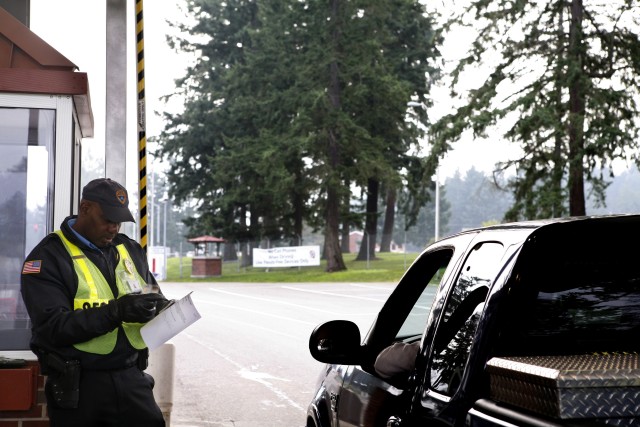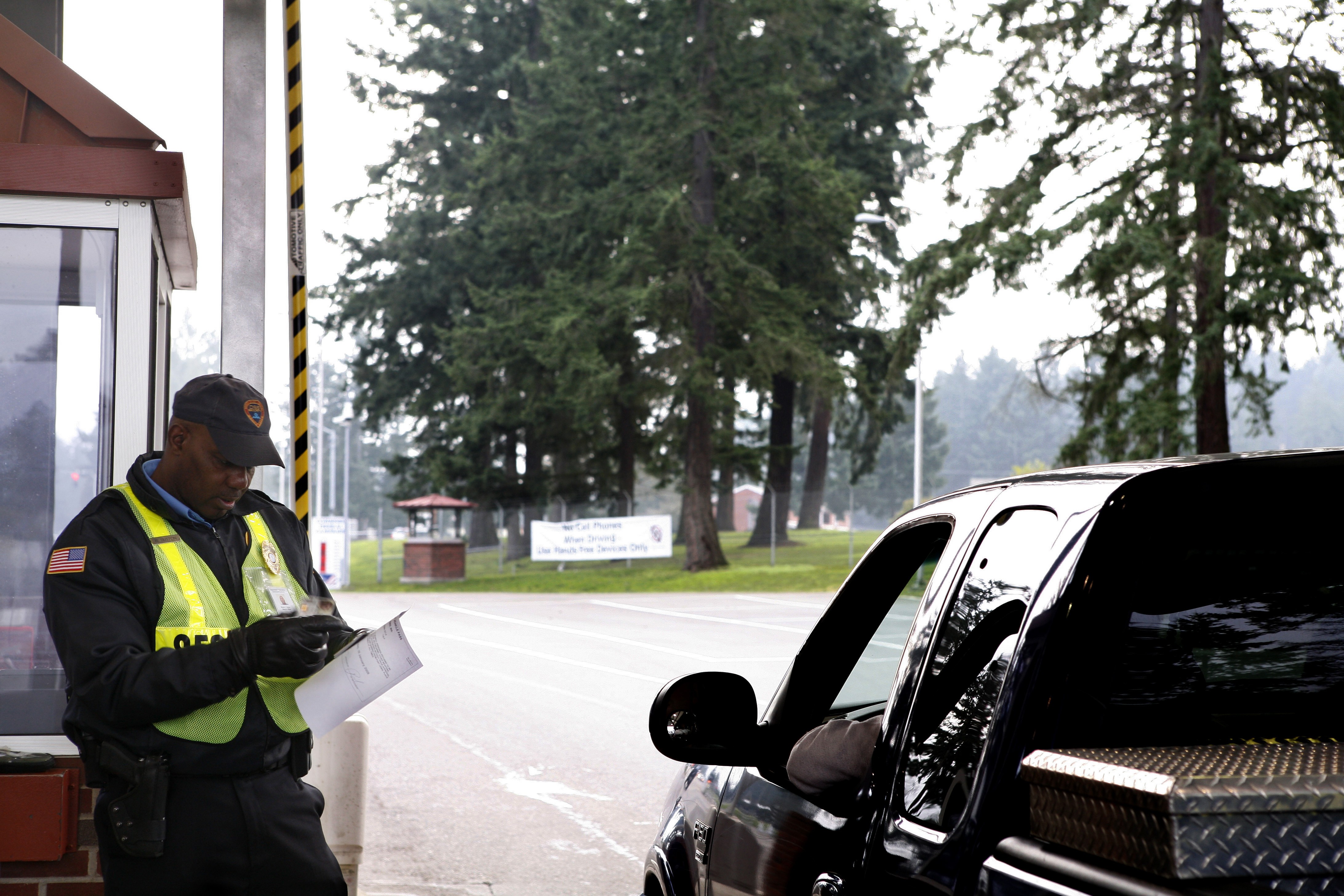FORT LEWIS, Wash. - Next time you drive on or off post and experience a minor delay at the gate, keep in mind that convenience sometimes must take a back seat to security at Fort Lewis.
"We will not sacrifice security for the sake of convenience," said Larry Freeman, supervisor of Installation Access and Department of the Army Guards for the Directorate of Emergency Services. "We'll do what we can, but our overriding concern is the security of the installation and the security of the people who live and work here."
Keeping Fort Lewis secure each day is a complex task that requires a cooperative effort by Army employees, contractors and outside agencies.
"Army rules require that we control access, but details of procedures are locally developed," Freeman said.
"We analyze a whole bunch of different things and discuss what we think is best for the Fort Lewis area. We've got a lot of things we have to consider."
It's all done in the face of increasing traffic volume at Fort Lewis. In fiscal year 2008, more than 16 million vehicles - 314,000 per week - came through the gates. That compared with FY2007 figures of 14 million and 273,000, respectively.
"This becomes a very complex business when you're looking at 350,000 people a week coming through your gates and 5,000 a week going through your Visitors Center," said Mel Austin, chief of the Security and Access Division of DES.
"We all understand that the majority of the people, the vast majority, our good, law-abiding citizens who have a reason for coming here," Freeman said. "We know these are not bad people, and we know they don't represent a threat."
As Austin pointed out, traffic passes through the gates "unevenly spaced." He added that approximately 40 percent of it is processed during rush hours. Add the variables on Interstate 5, and backups sometimes are unavoidable.
Kurt Illig, chief of guards for Doyon Security, which provides gate security at Fort Lewis, said that his charges noticed the year-over-year increase in traffic but coped with it.
"I think they're handling it pretty well right now," Illig said. "The higher volumes of traffic lead to higher customer complaints and people not understanding what the holdup is and stuff like that. In my opinion, the volume of complaints has seemed to drop off."
Austin said the decrease in complaints could be attributed to a maturing Fort Lewis security program.
"We've been at this for a relatively short period of time," said Austin of the tighter security made necessary by 9/11. "We've been learning as we go how to do it better. I think it's reasonable to say that over the years, we've just gotten better at doing this business. And even though the workload's heavier, because we're better at what we're doing, we're not generating, perhaps, as much angst."
As Illig pointed out, most of the Doyon guards at Fort Lewis have prior experience with the military or law enforcement.
"They are familiar with how the installation works," Illig said. "They go through a great training program."
"They take their job pretty seriously that they're here to help protect the installation and protect the families that are here on the installation," Freeman added.
Over the past year, those guards have stopped 75 illegal immigrants, 280 registered sex offenders and 70 persons wanted under arrest warrants. They have identified 111 people trying to bring firearms onto the installation without authorization.
The guards have helped with 40 medical emergencies, put out a vehicle fire, uncovered a police impersonator, and stopped a troop carrier about to lose a rear axle. Recently, they even helped Fort Lewis police apprehend a man wanted in connection with a well-publicized string of coffee shop robberies.
The suspect had come to the gate and wanted to turn around. When asked to produce a driver's license, he sped onto the installation, was pursued by MPs, crashed and was detained.
"The guards that first contacted this guy were just doing their job," Freeman said. "That all starts with somebody at a gate doing their job."
Fortunately for those who live and work on Fort Lewis, they're out there doing it every day.
Bob Reinert is a reporter with Fort Lewis' Northwest Guardian.


Social Sharing